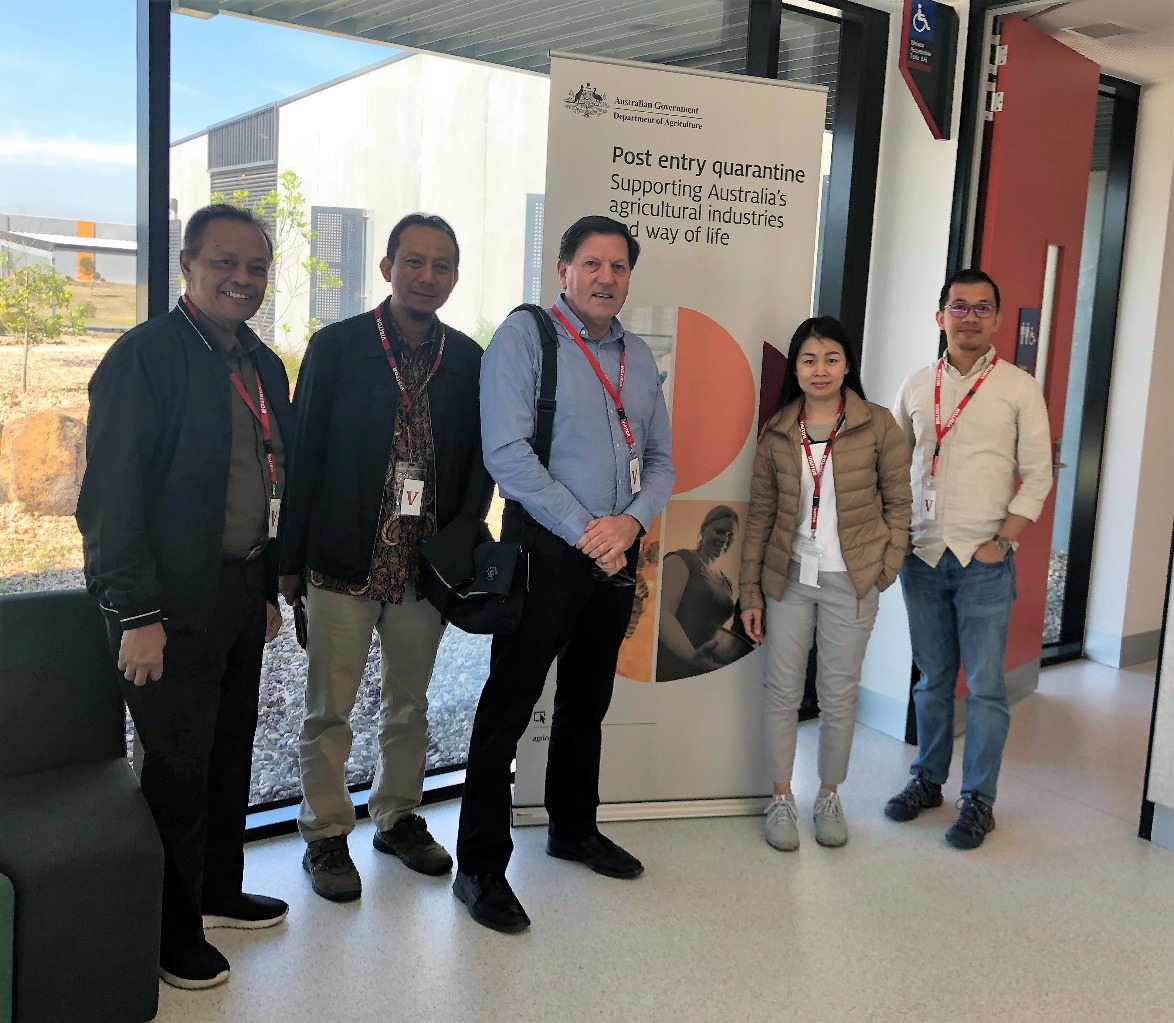

Plant Diseases, Biosecurity and Quarantine
July 13, 2020
Late last year, with the support from the Crawford Fund’s Victorian Committee, four plant pathologists from Indonesia, Philippines and Thailand attended a training program hosted by Professor Paul Taylor at the University of Melbourne. The training aimed to assist the attendees in gaining knowledge of the latest developments in fungal plant pathogen identification and develop a better understanding of border protection and plant biosecurity.

“Exotic fungal plant pathogens pose a biosecurity risk to all agricultural industries. Capacity building in fungal plant diagnostics and biosecurity for plant pathology researchers is essential to help protect the movement of exotic pathogens across country borders. Training in molecular plant pathogen identification, PCR-based diagnostics, and in biosecurity policy and implementation is not readily available in Indonesia, Philippines and Thailand,” said Paul.
The program involved visiting plant pathology laboratories and quarantine facilities at the University of Melbourne, the Victorian Department of Agriculture’s Plant Biosecurity Post-Entry Quarantine Facility and the AgriBio Centre at La Trobe University. The trainees also attended the Australasian Plant Pathology Society Conference held in Melbourne and participated in a workshop on Colletotrichum Taxonomy and Impact on Biosecurity.
“The training covered all aspects of plant pathology, genomics, identification and detection of plant pathogens; plant disease management; and biosecurity and quarantine. It provided the knowledge and information necessary to carry out my main duties as a lecturer: teaching, research, and community service,” said Dr Andi Nasruddin, Department of Plant Pest & Diseases, Universitas Hasanuddin, Indonesia.
The outcomes of the Crawford Fund training program have enabled these plant pathologists to better understand the risk of entry of exotic pathogens into their countries and have provided a framework to develop more strategic directions to better implement border security.




